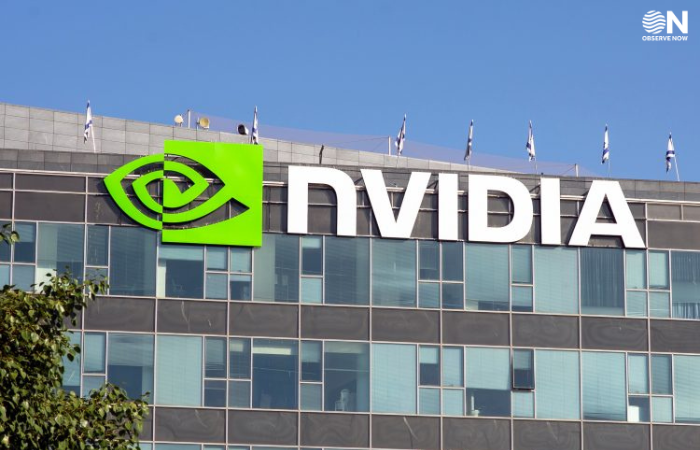Nvidia Becomes First Company to Cross $4 Trillion Market Cap Amid Global AI Boom

Nvidia has officially become the first publicly listed company in the world to surpass a $4 trillion market capitalization, cementing its dominance at the forefront of the artificial intelligence revolution. The chipmaker’s shares surged in recent trading sessions, hitting new all-time highs and pushing its valuation beyond the $4 trillion mark, ahead of longtime market giants like Apple and Microsoft. The historic milestone reflects the investor community’s extraordinary confidence in Nvidia’s continued leadership in supplying the foundational hardware powering AI development worldwide.
The company’s meteoric rise has been fueled by the explosive demand for high-performance GPUs that are essential for training and deploying large language models and other generative AI applications. Over the past two years, Nvidia has become synonymous with AI infrastructure, with major tech companies such as Amazon Web Services, Google Cloud, Microsoft Azure, Meta, and Tesla relying heavily on its chips for their hyperscale data centers and AI initiatives. Analysts estimate that hyperscalers globally are expected to invest more than $300 billion in AI infrastructure by the end of 2025, with Nvidia likely to capture a significant portion of that spend.
What sets Nvidia apart is not just its hardware dominance but also its software stack and developer ecosystem, which includes tools like CUDA and platforms like DGX Cloud. These capabilities create a technological moat that competitors have yet to match. The company’s quarterly earnings have consistently outperformed expectations, with revenues growing in triple digits year-on-year and margins expanding, even amid broader tech sector volatility. Its acceleration from a $1 trillion company in 2023 to $4 trillion in 2025 is unprecedented in modern financial history, showcasing a compounding market response to AI-driven innovation.
Investors have taken note not only of Nvidia’s performance but also of the long-term structural demand for AI processing. From autonomous vehicles to robotics, healthcare diagnostics to virtual assistants, AI is becoming deeply embedded in enterprise and consumer technologies alike. Nvidia’s chips—particularly the H100 and upcoming Blackwell series—are considered mission-critical to enabling these breakthroughs. Additionally, strategic partnerships with cloud providers, research institutions, and governments have further extended its global influence.
However, the path forward is not without challenges. Geopolitical tensions, particularly around U.S.-China tech exports, pose regulatory risks for Nvidia’s international business. Furthermore, some of its biggest customers, including Google and Microsoft, are developing their own custom AI chips, raising questions about long-term dependency. Despite these uncertainties, Nvidia’s integrated approach to hardware and software, combined with relentless innovation, continues to give it a competitive edge.
Market watchers are also closely observing whether Nvidia’s valuation can be sustained amid macroeconomic shifts and competitive dynamics in the semiconductor space. Yet, for now, the company’s $4 trillion valuation marks a turning point not just for Nvidia but for the global tech landscape. It is a strong indicator of the central role semiconductors—and particularly AI accelerators—will play in defining the future of technology.
With this achievement, Nvidia has redefined what’s possible in capital markets, establishing itself not only as a chipmaker but as the cornerstone of the AI era. The milestone reflects the company’s evolution from a niche graphics card manufacturer into a global powerhouse shaping everything from cloud computing and scientific research to entertainment, finance, and beyond.
















